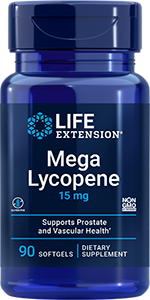 | April 18, 2009 | | | | In the March, 2009 issue of the Annals of Surgery, researchers at Trinity College Dublin and St James’s Hospital report that supplementing with the omega-3 fatty acid eicosapentaenoic acid (EPA) helps preserve muscle mass in patients recovering from esophageal cancer surgery. “There are almost 450 new cases of esophageal cancer diagnosed every year in Ireland and Ireland has one of the highest rates of esophageal cancer in Europe,” noted lead researcher and John V Reynolds, who is a professor of surgery at Trinity College Dublin. “An increasing number of patients are treated with chemotherapy alone or in combination with radiation therapy before they undergo surgery. The surgery is a serious operation lasting several hours, and can take weeks to recover from and up to six months to recover pre-illness quality of life. Weight loss is extremely common both before and especially after this type of surgery, and any approach that can preserve weight, in particular muscle weight and strength, may represent a real advance.” Dr Reynolds and colleagues randomized 53 patients to receive a calorie-rich nutritional supplement with or without 1.1 gram EPA twice daily before and after surgery. Participants consumed the supplement orally starting five days prior to surgery and through a feeding tube for two to three weeks after the operation. While subjects who received EPA maintained their weight and muscle mass, those that did not receive the fatty acid lost an average of 4 pounds of muscle mass after their surgeries. “The results were extraordinary in the sense that no previous nutritional formulation had revealed such an outcome, with supplemented patients maintaining all aspects of their body composition in the three weeks following surgery,” coauthor Aoife Ryan stated. “Patients given the standard supplement without omega-3 lost a significant amount of weight comprising 100% muscle mass. In fact 68% of patients suffered ‘clinically severe’ weight loss post surgery in the standard group (without omega-3) versus only 8% in the omega-3 group. The significant finding was that the patients did not lose just fat, as one would expect with weight loss, but instead they depleted their muscle stores significantly.” “Omega 3 enriched nutrition appears to prevent loss of muscle mass by reducing the amount of inflammatory markers in the blood – this means the metabolism is not as stressed as it usually is post surgery,” Dr Reynolds added. “We also saw that the omega-3 group was less likely to have a fever in the first week post surgery which points to the ability of omega-3 to suppress inflammation. Looking at their blood tests omega-3 fed patients had much lower inflammatory compounds circulating in their blood which points to the ability of omega-3 to reduce inflammation.” “This study has provided an interesting insight into how nutritional therapy can positively impact on the major stress of cancer surgery,” he concluded. “Throughout cancer care, many patients undergoing therapy nowadays have a combination of surgery, chemotherapy and radiation therapy, and studies addressing whether nutritional supplementation with omega-3 for the entire duration of treatment should be considered. Finally, we do not expect these findings are unique to cancer surgery, and similar benefits may accrue to patients needing complex surgical care for non-cancer problems, for instance liver transplantation or major cardiac surgery.” | |  |
| In general, surgery can be divided into three main phases: the preoperative period; the period during the surgery; and the postoperative, or recovery, period. At each of these stages, patients can take an active role in their own well-being by following documented steps to support their body’s antioxidant stores, reduce inflammation, and modulate the immune responses that accompany surgery. By paying careful attention to nutritional status, patients can speed their recovery and experience more successful results (Asher ME 2004; Schmiesing CA et al 2005). Most surgeons now recognize that good attention to nutrition, including its effects on antioxidant and inflammatory status, can have major positive impact on the outcome of a surgical procedure (Calder PC 2004). No longer a minor part of the postoperative orders, a comprehensive nutritional program begun in the weeks prior to surgery and continued at the earliest possible postoperative moment is known to increase survival, reduce complications, minimize length of hospital stays, keep costs down, and significantly enhance patients’ quality of life (Ellis LM et al 1991). While many different mixtures of nutrients have been used in immunonutrition, several main components appear to provide maximum benefit. The goal of reducing the exaggerated inflammatory response to surgery is met through the provision of omega-3 fatty acids, largely derived from fish oils (Grimble RF 2005). These fatty acids can shift the production of cytokines away from those that stimulate inflammation (Heller A et al 2000). They also make cell and mitochondrial membranes more resistant to oxidant stress (Ates E et al 2004), which reduces tissue damage and prevents amplification of the inflammatory response. Most effective immunonutrient supplements contain substantial quantities of omega-3 fatty acids. More than 170 studies have been published on various immunonutrient combinations that have shown positive results (Grimble RF 2005). Patients given a preoperative formula containing omega-3 fatty acids and arginine had significantly improved systemic immune responses, gut oxygen levels, and gut perfusion compared with control patients (Braga M et al 2002). In a different study, patients supplemented with arginine, glutamine, and omega-3 fatty acids had higher postoperative total protein and immunoglobulin levels, higher levels of infection-fighting white blood cells, and lower levels of pro-inflammatory cytokines and tumor necrosis factor than did unsupplemented controls, demonstrating that these supplements enhanced host defenses while modulating the exaggerated inflammatory response (Chen da W et al 2005). |
| |  | | Life Extension Update | | What's Hot | | Life Extension magazine | |















